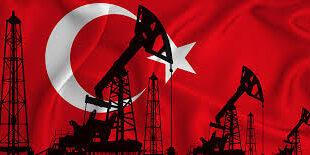Global energy companies operating in the UAE are optimistic that a consensus can be reached around the Cop28 pledge of tripling renewable energy capacity and doubling energy efficiency by 2030.
The US, EU and UAE are rallying other governments to join a global deal on renewables at the UN climate summit in Dubai this month.
Renewable power capacity must reach more than 11,000 gigawatts this decade to meet the Paris Agreement goal of limiting the rise of global temperatures to below 2°C, the International Renewable Energy Agency, Cop28 presidency and Global Renewables Alliance said in a report last month.
Bruno Bensasson, chairman and chief executive of France’s EDF Renewables, hopes that there’s a deal, but said that more needed to be done to cut carbon emissions.
“The full picture should also include nuclear energy, carbon capture [and] low-carbon hydrogen,” Mr Bensasson told The National.
“The most difficult part is not so much to produce more low carbon energy, it’s to bring it to the customer.”
The use of low-carbon energy in heavy industries such as transportation and construction would require more technological innovations, Mr Bensasson said.
EDF Renewables, a stakeholder in major renewable energy projects in the Emirates, develops power generation plants globally. At the end of last year, the company operated a net installed wind and solar capacity of 11.4 gigawatts worldwide.
“I am optimistic that the tripling and doubling initiative will be supported by the vast majority [of countries] for sure,” Mr Bensasson said.
Peak fossil fuel demand is now in sight by the end of the decade, supported by clean energy policies and the rising adoption of electric cars, according to the International Energy Agency.
Charles Bai, head of international business at China’s Jinko Power, said the target set by the Cop28 Presidency was “realistic” in the context of the growth witnessed by the industry in the past few years.
“The doubling or tripling is not a slogan. It is not something that you cannot hit because the bar is set too high.”
Shanghai-based Jinko Power is a stakeholder in projects such as the Sweihan solar project and Al Dhafra solar plant, both in Abu Dhabi.
Last week, the company signed an agreement with the Saudi Power Procurement Company for the development of the 400-megawatt Tabarjal solar project in the kingdom, boosting its solar portfolio in the country to 700 megawatts.
“The Emirates has the growth potential, but also more importantly, it has a very structured programme offered to international investors, with clearly defined parameters,” Mr Bai said.
Abu Dhabi renewable energy company Masdar, established in 2006, is one of the main drivers of the UAE’s energy transition ambitions.
The company is working towards a renewable energy portfolio capacity of at least 100 gigawatts by 2030 and an annual green hydrogen production capacity of up to one million tonnes by the same year. It is currently active in more than 40 countries.
“It’s time to include every player – public sector, private sector, NGOs, governments and so on – into making significant actions to meet the pledges and commitments, which have been made,” said Abdulaziz Alobaidli, Masdar’s chief operating officer.
The UAE will be an important bridge between the developing and developed world, said Majid Jafar, chief executive of Crescent Petroleum, during an event in London on Monday.
“Climate policies must be revised to reflect the needs and views of the developing nations as well as those of the West,” he added.
“That is why we can all look forward to real and lasting action at Cop28 in Dubai this year.”

 Iran Energy News Oil, Gas, Petrochemical and Energy Field Specialized Channel
Iran Energy News Oil, Gas, Petrochemical and Energy Field Specialized Channel



